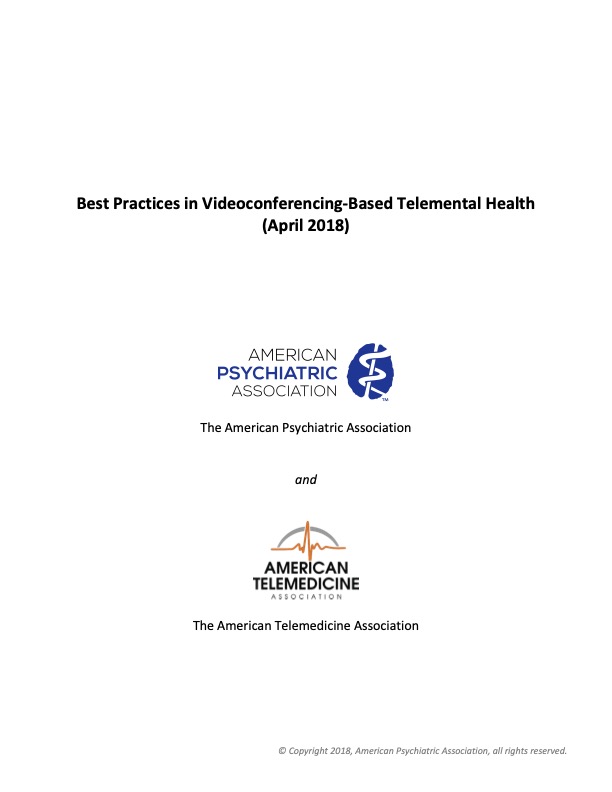
Strategies for Consumer Engagement in Telehealth
This session focuses on patient engagement using telehealth kiosks; learning and discussing applications to your practice. The session was held live during Telehealth in a Post-Pandemic Era: Sustainable Approaches to Support Integrated Care – Part 2, held on September 29, 2021.
Addressing Crisis and Risk During a Telehealth Visit – Case Based Workshop Discussion
This session focuses on telehealth best practices; caring for patients via telehealth who have suicidal ideations and other urgent issues. The session was held live during Telehealth in a Post-Pandemic Era: Sustainable Approaches to Support Integrated Care – Part 2, held on September 29, 2021.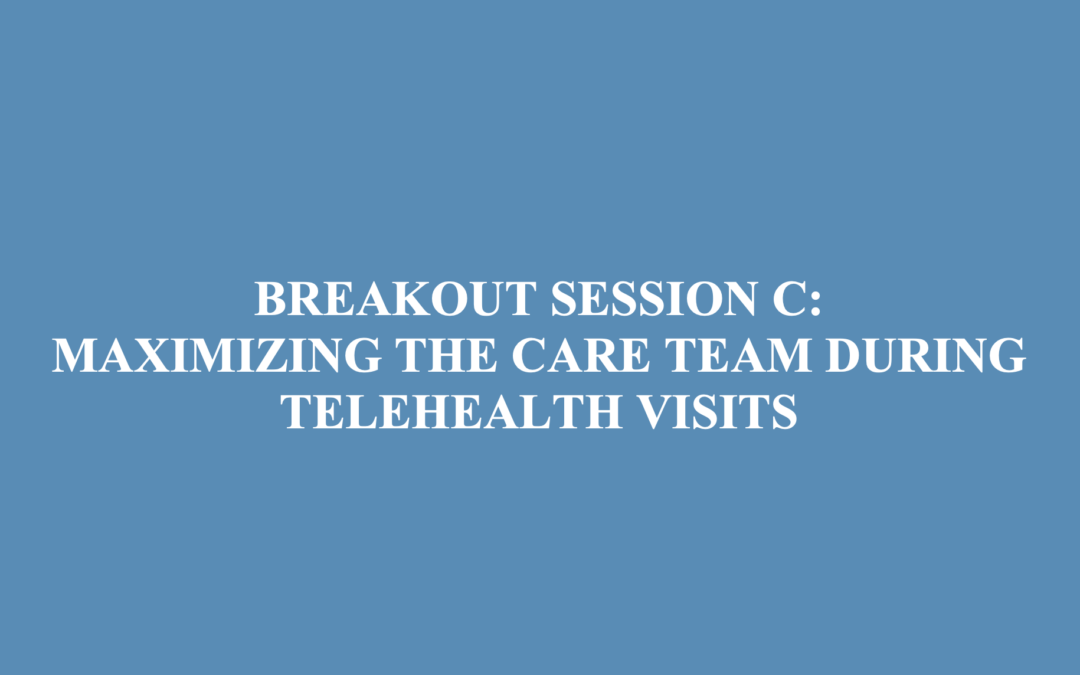
Maximizing the Care Team During Virtual Visits
This session focuses on learning and applying new virtual workflow strategies to engage your entire care team. The session was held live during Telehealth in a Post-Pandemic Era: Sustainable Approaches to Support Integrated Care – Part 2, held on September 29, 2021.Adapting Evidence Based Practices for Integrated Care
This webinar workshop series focuses on key elements of evidence-based practices/treatments to assist providers with achieving successful implementation and outcomes. HMA presenters discuss key components of EBPs including but not limited to training, indicated populations, fidelity assessments, tools, and other relevant topics. This webinar includes an interview with psychologist Jennifer Frey who discusses the ways in which she uses and adapts the EBP of Motivational Interviewing in her work as a behavioral health consultant at Unity. Following this webinar, there is a series of three EBP workshops that includes cognitive behavior therapy, behavioral interventions for stress management trauma-informed care, problem-solving therapy.Telehealth in a Post-Pandemic Era: Sustainable Approaches to Support Integrated Care – Test

Viewing Time 1 Hour
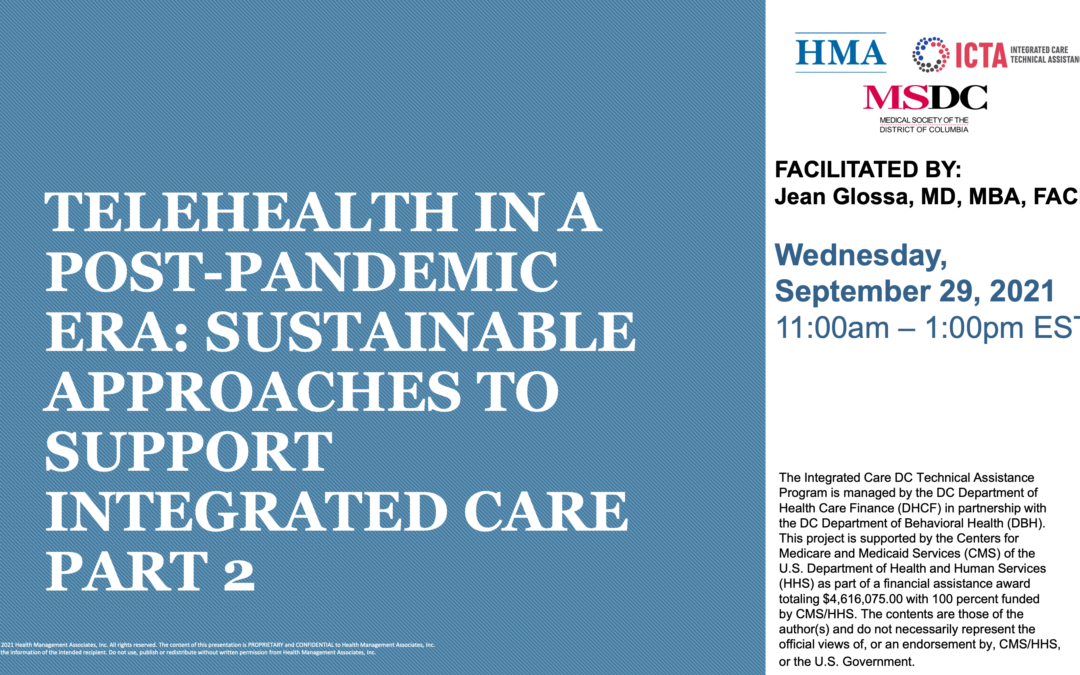
Telehealth in a Post-Pandemic Era Sustainable Approaches to Support Integrated Care – Part 2
This interactive virtual workshop is part two of a two-part series to support providers ongoing efforts to implement and sustain innovative models of telehealth following the COVID-19 public health emergency. Topics include best practices to support behavioral health care delivery through telehealth; improving patient engagement through telehealth and DC telehealth policy and priority updates.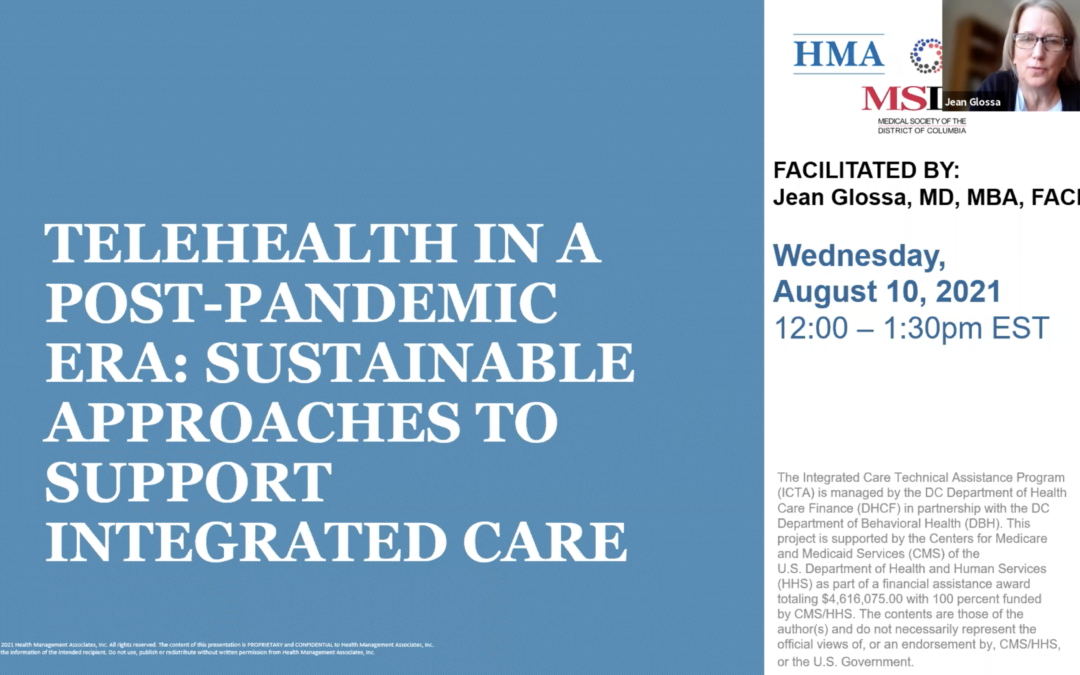
Telehealth in a Post-Pandemic Era: Sustainable Approaches to Support Integrated Care – Part 1
https://www.integratedcaredc.com/wp-content/uploads/2021/08/Webinar-Telehealth-in-a-Post-Pandemic-Era-Sustainable-Approaches-to-Support-Integrated-Care.mp4Webinar This interactive virtual workshop is part one of a two-part series to support providers ongoing efforts...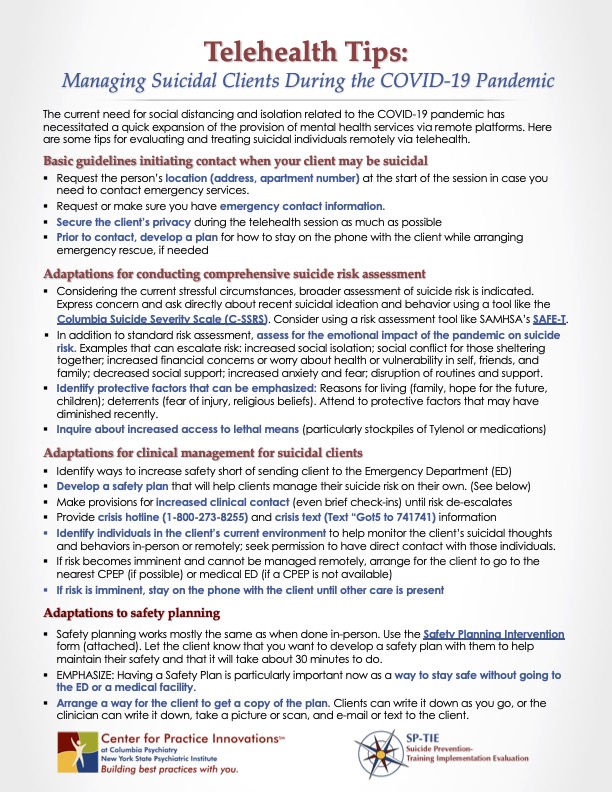
Telehealth Tips: Managing Suicidal Clients During the COVID-19 Pandemic
The current need for social distancing and isolation related to the COVID-19 pandemic has necessitated a quick expansion of the provision of mental health services via remote platforms. This tip sheet provides some tips for evaluating and treating suicidal individuals remotely via telehealth.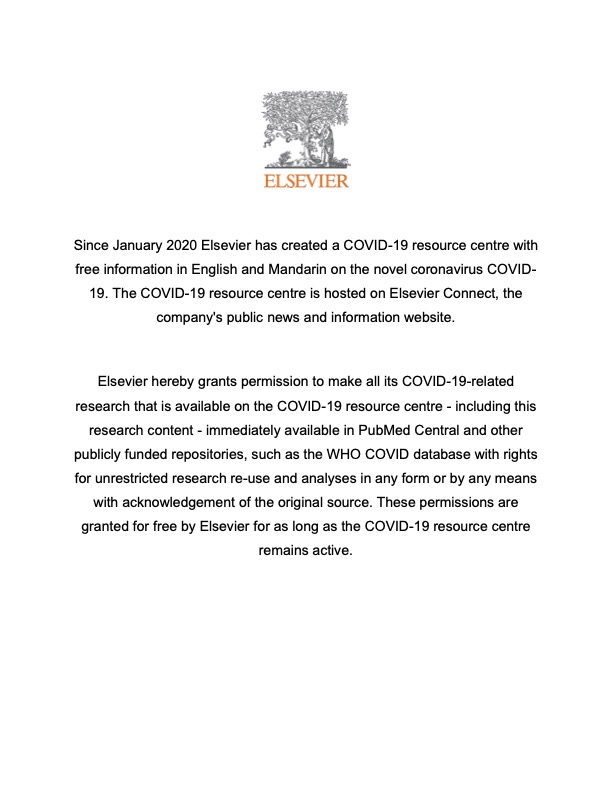
Implementing Telemedicine in Primary Care: Learning Lessons From Electronic Health Records
The common narrative is coronavirus disease 2019 happened, payment and policy barriers were quickly lowered, and voila, telemedicine, a technology for which adoption had been slow over the past decade, is, within a matter of months, in widespread and successful use. Fait accompli. On to this narrative has been grafted the hopes that telemedicine will solve other persistent problems, particularly in primary care.Addiction Free California
The California Department of Health Care Services (DHCS) has implemented the California Medications for Addiction Treatment (MAT) Expansion Project to address the opioid epidemic throughout the state. This website serves as a separate yet complementary resource to the DHCS MAT Expansion Website and provides resources and information related to the four MAT Expansion Project initiatives operated by Health Management Associates. The California MAT Expansion Project aims to increase access to MAT, reduce unmet treatment need, and reduce opioid overdose-related deaths through the provision of prevention, treatment, and recovery activities. The project focuses on individuals experiencing homelessness, youth, rural, and tribal populations with limited MAT access. The California MAT Expansion Project, composed of nearly 30 initiatives, is funded by grants from the Substance Abuse and Mental Health Services Administration (SAMHSA).